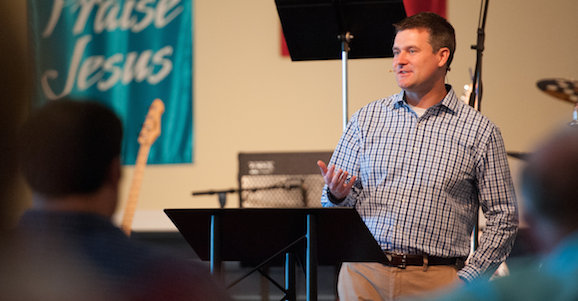GCR Component #3: The IMB Without Limits
April 26, 2010 at 06:28 PM
Did you know the IMB is literally prohibited from operating in North America? It seems to make sense at first, though, doesn't it? The North American Mission Board is responsible for North America and the International Mission Board is responsible for other continents. Seems like it should work out just fine. And, after all, isn't part of this whole Great Commission Resurgence movement about avoiding and reducing duplication of ministry?
Well, as with most things pertaining to Southern Baptist organization, it's a lot more complicated than that. First, it's a little misleading to think NAMB is responsible for North America since it's really only the U.S. and Canada (and their territories) that NAMB is charged with serving. But on top of the fact that Mexico isn't included in the SBC's map of North America (smile, I'm joking) there are people groups here in North America that NAMB is by no means prepared to reach. Language and cultural barriers are too great with many immigrant populations - and there are too many of these for NAMB to try and accommodate.
Then you have a thought... "Wait! I know! The IMB already ministers in many of these international contexts so they might be able to show us how to reach these groups."
And then someone tells you, "No, the IMB isn't allowed to do that."
It isn't that the IMB doesn't want to help, or that they can't afford the personnel. (Though either of those may be true at different times.) The real reason they can't is because it's on page 325 of the Official Rulebook of the SBC. Ok, not really, but it is a real rule the IMB has to abide by.
The Text of Component #3:
The IMB has already indicated that even if this recommendation is accepted, they have no intentions of appointing missionaries stateside. The thrust of this recommendation is to remove the artificial barrier preventing IMB personnel and resources from being used to help equip others to minister to these groups.
Here's more from the report:
Well, as with most things pertaining to Southern Baptist organization, it's a lot more complicated than that. First, it's a little misleading to think NAMB is responsible for North America since it's really only the U.S. and Canada (and their territories) that NAMB is charged with serving. But on top of the fact that Mexico isn't included in the SBC's map of North America (smile, I'm joking) there are people groups here in North America that NAMB is by no means prepared to reach. Language and cultural barriers are too great with many immigrant populations - and there are too many of these for NAMB to try and accommodate.
Then you have a thought... "Wait! I know! The IMB already ministers in many of these international contexts so they might be able to show us how to reach these groups."
And then someone tells you, "No, the IMB isn't allowed to do that."
It isn't that the IMB doesn't want to help, or that they can't afford the personnel. (Though either of those may be true at different times.) The real reason they can't is because it's on page 325 of the Official Rulebook of the SBC. Ok, not really, but it is a real rule the IMB has to abide by.
The Text of Component #3:
We believe in order for us to work together more faithfully and effectively towards the fulfillment of the Great Commission, we will ask Southern Baptists to entrust to the International Mission Board the ministry to reach the unreached and under-served people groups without regard to any geographic limitations.
The IMB has already indicated that even if this recommendation is accepted, they have no intentions of appointing missionaries stateside. The thrust of this recommendation is to remove the artificial barrier preventing IMB personnel and resources from being used to help equip others to minister to these groups.
Here's more from the report:
So the expertise of our missionaries overseas can be channeled to help us (local churches primarily, I hope, along with state conventions and NAMB) reach these groups with the gospel. Let's use the resources we have available to us and stop limiting based on barriers that are no longer as significant as they were 50 years ago.Most of the 586 people groups that do not speak English in the United States have strategy coordinators working overseas with the same groups. With geographical limitations removed, a new synergy can be created in international missions.
blog comments powered by Disqus



